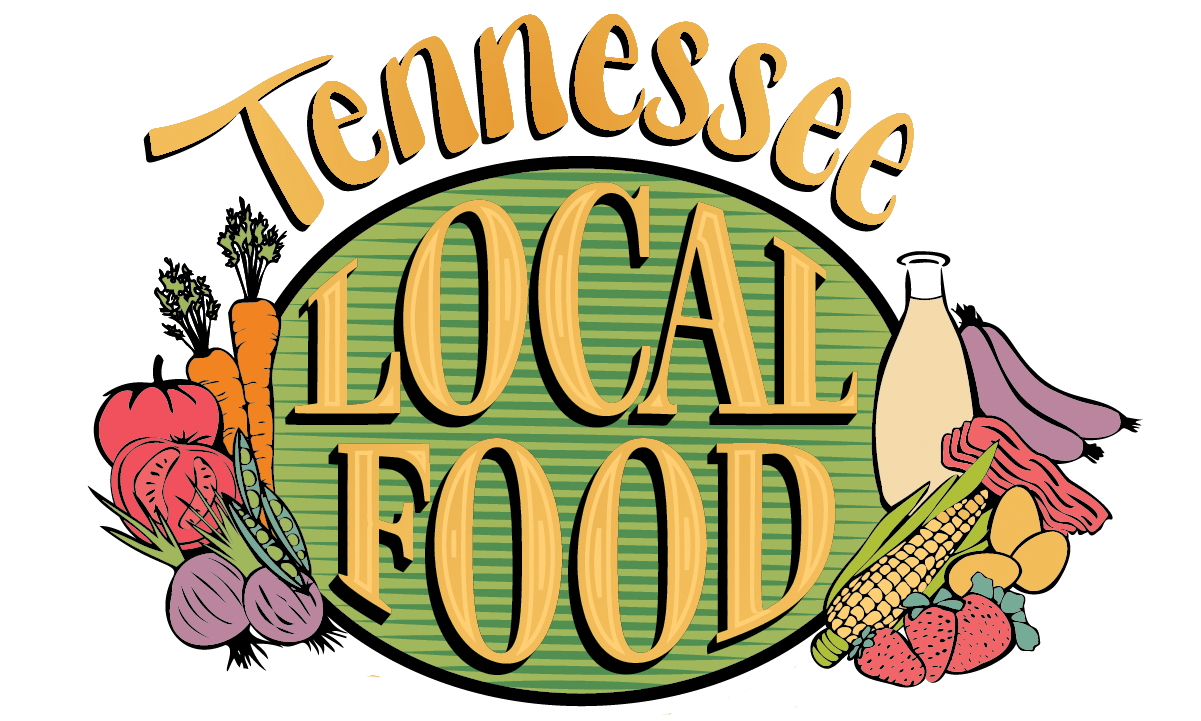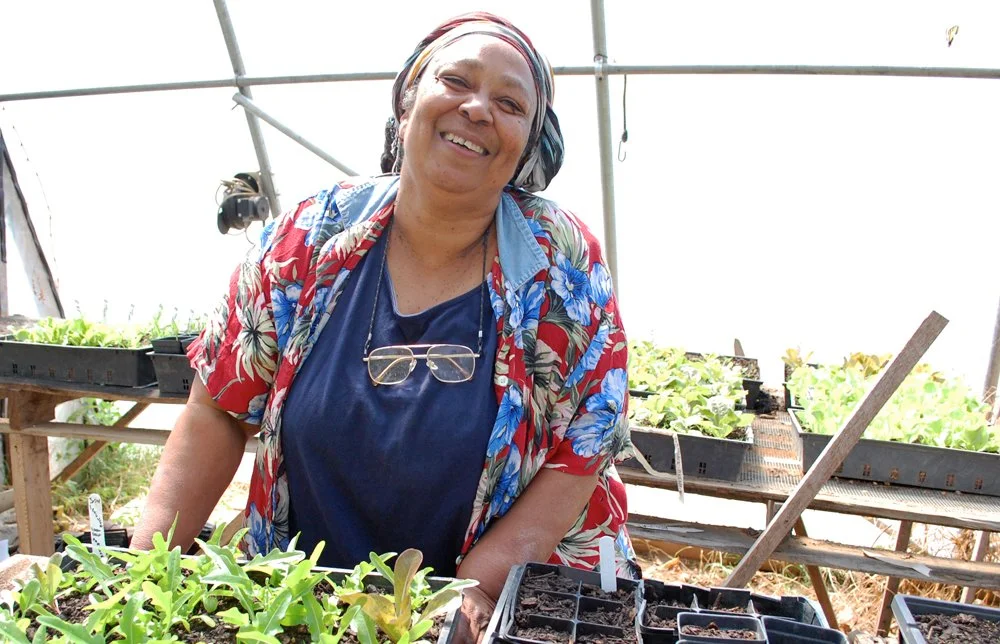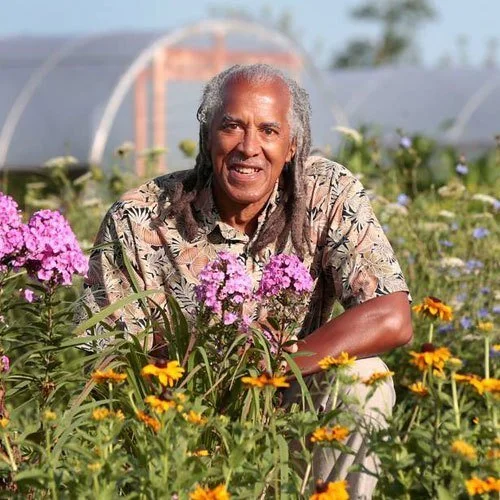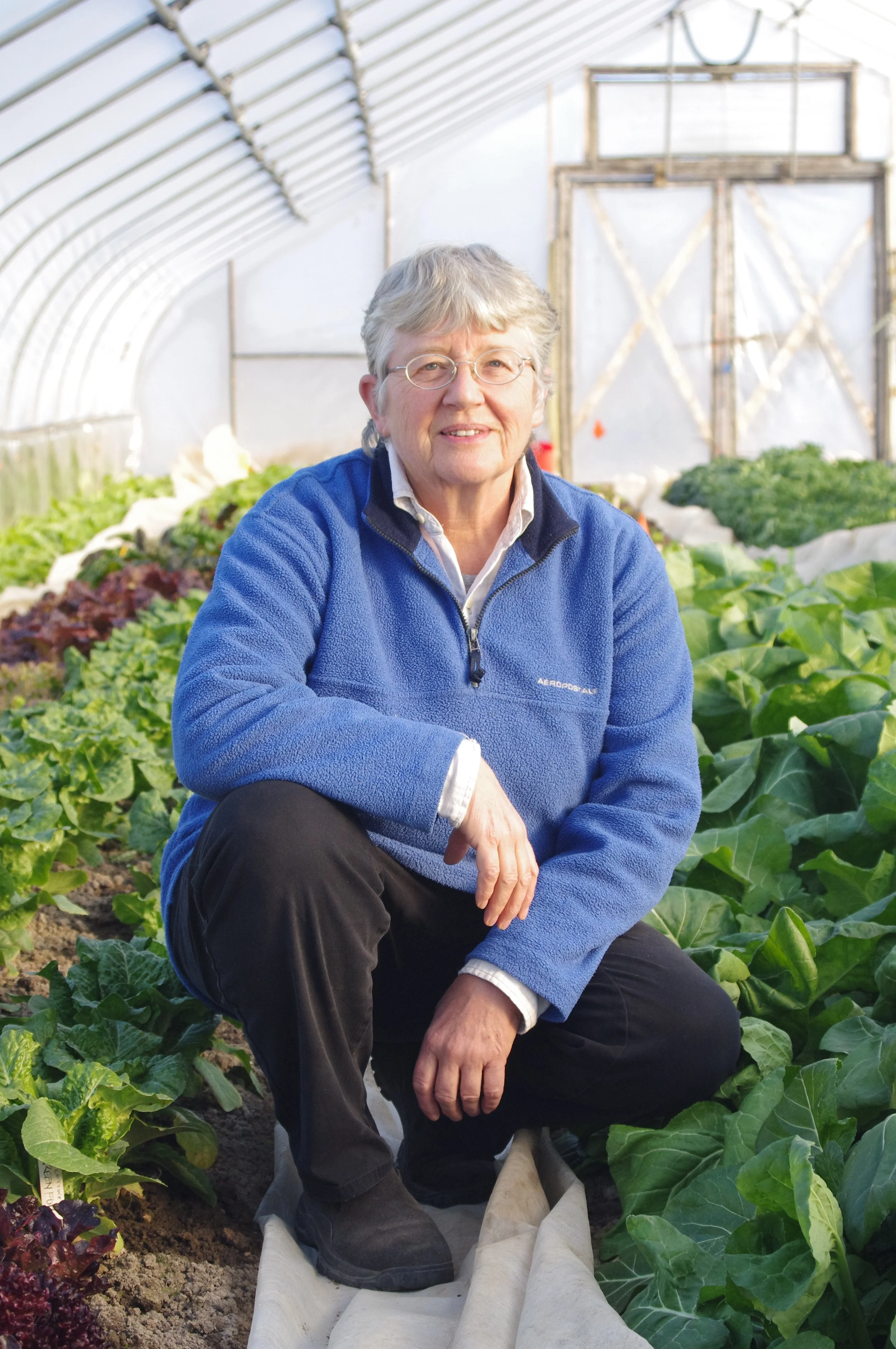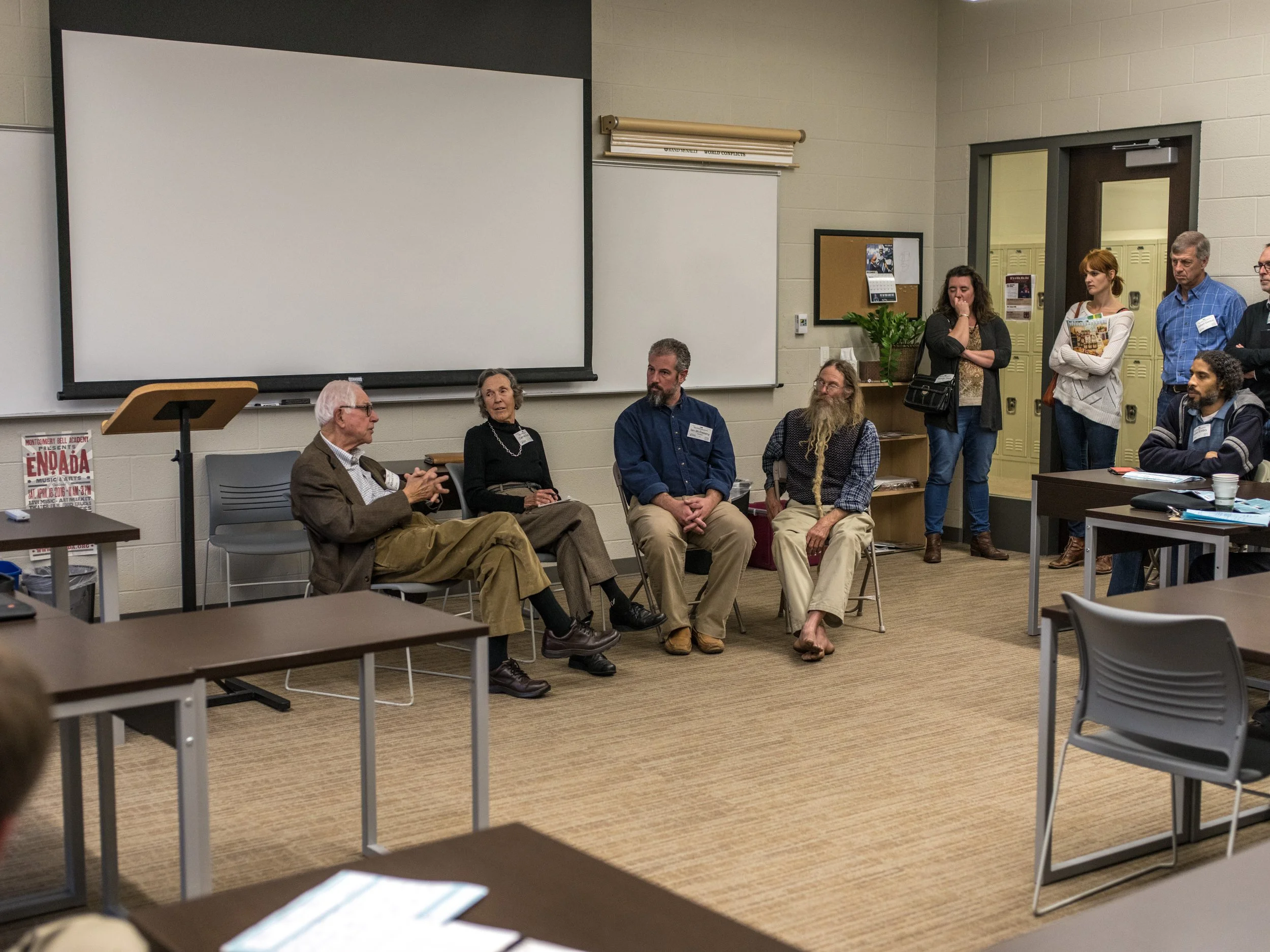
workshop sessions
TN LOCAL FOOD SUMMIT, DECEMBER 2 - 4, 2022
at Cumberland University Alumni Hall
2022 keynotes
-
As we continue to envision and actualize our work of transforming the dominant agri-food system into one that is more sustainable, just and regenerative, we are blessed to have ancestral principles and worldviews, especially of indigenous and African American food ways, that can serve as guiding lights along our pathway.
Engaging our local communities in food system transformation processes is by no means an easy challenge, but these guiding lights are essential to bringing about a fundamental change in our thinking that can usher in a paradigm shift at all levels. This sacred work "begins anew every single day".
Jim Embry is a farmer, activist, and director of Sustainable Communities Network in Lexington, KY.
-
Black and brown people are integral as workers in food and agriculture but are largely missing from the stories of cooperative organizing in agriculture, heirloom seeds and seed savers. Be inspired by historic accounts of black cooperative action and learn how tradition, taste, place and storytelling can work to preserve biodiversity and reclaim the place of black and brown people in issues of food sovereignty, farming, heirloom varieties and regional cuisine today.
Ira Wallace is a gardener, teacher and author. She manages Southern Exposure Seed Exchange, a cooperatively-owned seed company.
2022 WORKSHOP SESSIONS
-
Care Farming is the therapeutic use of farming practices for marginalized or vulnerable groups of people. Old School Farm of Bells Bend has been a part of this network since 2014, employing adults with disabilities who grow vegetables for donation to food banks. Come hear from the farm staff about how Old School Farm operates and how you can be a part of the Care Farming Network.
David Cloniger and Jayme Mangano of Old School Farm
-
Preservation of seeds is one of the foundations of sustainable food production. Learn why Seed Saving Matters and how GMO Agriculture, consolidation in the seed industry loss of genetic diversity and rapid decline in the number of active seed savers among black and white small farmers effects your farm or garden. Then learn about the basics of seed saving and seed production for your own farm and issues to consider when deciding whether selling seeds directly to gardeners or contracting for sales to independent seed companies both organic and non-organic will add to the bottom line on your farm.
Ira Wallace of Southern Exposure Seed Exchange
-
Greer Gill of the USDA gives an introduction to the federal Farm Bill. Kevin Hensley, Director of Public Policy for the Tennessee Farm Bureau, and Olivia Cleveland, the Southeast Organizer of the National Young Farmers Coalition describe their legislative priorities and discuss how we can all be involved in this process.
Greer Gill of USDA, Bill Kevin of TN Farm Bureau, and Olivia Cleveland of National Young Farmers Coalition
-
Are you looking for ways to add value to surplus or not-so-pretty fresh farm products? In this session, we will explore opportunities, challenges, factors of success and major steps to creating value-added agricultural products. We will also delve into the details of Tennessee’s New Food Freedom Act as well as the steps to becoming a licensed food manufacturer.
Megan Bruch Leffew of UT Extension and Patricia Szappanos Hart of TN Department of Agriculture
-
Description Coming Soon
Cynthia Capers of Heniscity Farms
-
In 2021, several community gardens gathered to build relationships with each other and formed the Nashville Community Garden Coalition. Over the past year, the coalition has been visiting a different member garden each month and partnering with each other to deepen our impact. In this panel, members of the NCGC will share their perspectives about the necessary role that community gardens play in the local food system by promoting community control of food production, providing opportunities for intergenerational learning and play, and offering space for community gathering and connection.
Members of the Nashville Community Garden Coalition
-
This panel discussion will focus on the various opportunities we have to decentralize the current food system which is easily disrupted by external factors. There was a time when local communities were food secure and sufficient and we can return to that possibility. This conversation will explore topics such as abundance (we all eat) versus scarcity (what we have now where not everyone eats), growing food at home versus growing turf grass to cut, eating wild foods, and other aspects of a decentralized food system.
Irucka Embry and Obiora Embry of Getting Back to Nature, and Jeremy Lekich of Nashville Foodscapes
-
This panel will host faith leaders from Middle Tennessee who are working at the junction of food and faith. We will explore how faith communities can and have utilized their resources of land, volunteers, parking lots, kitchens, building spaces, and/or finances to support one or more aspects of the Middle Tennessee local food system. There will both be presentations of the work that is ongoing and time for visioning, questions, and conversation as well.
Kate Fields of Belmont United Methodist Church, Mark Lancaster of Agrarian Trust FaithLands, Robin Lovett-Owen of Christ ELCA, and Tally May of The Nashville Food Project
-
Jim Embry will report on his experiences at Slow Food's Terra Madre Salone del Gusto in Italy, where the theme was FOOD REGENER-ACTION and included folks from 170 different countries. As a seven time USA delegate to Terra Madre, Jim will share how these experiences of the international Slow Food movement to create good, clean and fair food for all connects with our local initiatives.
-
Use the summer hoophouse for hot weather crops that struggle outdoors because of temperature or bugs! As well as food crops, consider seeds, cover crops, flowers, and cover crops for soil improvement. This presentation also discusses cooling the hoophouse; using the opportunity to tackle soil-borne diseases or improve the soil and other uses like seed drying.
Pam Dawling of Sustainable Market Farming
-
Learn about resources and opportunities for small farmers to receive financial assistance, whether that be through cost shares, grants, or access to capital.
Trevor Hunt of Natural Resources Conservation Services
-
Participate in a discussion with public school district farmers about their journey to bridge the gap between organic school gardens and 21st century classrooms. Discussion includes developing an elementary STEM curriculum, obtaining successful funding, creating administrative buy-in, and maintaining program longevity. Their program empowers and educates students and teachers through first-hand garden experiences, resulting in a deeper connection to organic food production and regenerative soil health.
Cari Chestnut of Murfeesboro Public Schools
-
Description coming soon
Marie Campbell, Brooklyn Heights Community Garden
-
Land access is the number one barrier for farmers today. Nationwide, Tennessee ranks 3rd worst in terms of farmland loss, mostly to housing subdivisions and large-lot developments. Join Southeast Tennessee Young Farmers and American Farmland Trust as they discuss state policy measures that can be used to both protect farmland and improve accessibility. Agrarian Trust will then discuss their innovative Commons model and how it uses creative and equitable lease terms to get farmers onto land now, including right here in Middle Tennessee.
Kristina Villa of Agrarian Trust, Emma Chapman of Southeast TN Young Farmers, and Brooks Lamb of American Farmland Trust
-
In Lebabon, TN, a local weaving shop sells fibers made from animals raised on nearby farms. Hear how fiber can be an addition to your farm, and how local partnerships benefit all involved.
Cynthia Rice of Sunshine Weaving and Fiber Arts, Lisa Cruz, and Lucas Holman of UT Extension; moderated by Jeannie Hunter of Society of St. Andrew
-
How do we increase access to fresh, local food? Hear from a panel of innovative business owners who are leveraging technology, grant funding, and cooperative models to increase access and affordability of healthy food while supporting middle Tennessee farmers.
Jim Douglas of Porter Road Grocery, Stuart of Hot Poppy Go, Holly Martin of Gaining Ground Cooperative, and Ellery Richardson of Nashville Food Coop
-
Farming, ranching, forestry, and other agriculture-related occupations are stressful. Southern Ag Exchange Network was established to connect agriculture producers in the south with training and resources related to finances, legal issues, farm operations, weather, and health stressors with the hopes of avoiding undue mental health strain. In this session, participants will learn more about the efforts of SAgE and what resources and trainings have been identified to assist agricultural producers in Tennessee.
Tesha Humphrey, UT Extension coordinator for the Southern Region Farm and Ranch Stress Assistance Network
-
The Cumberland University Culinary Center project began in 2008. The funding was provided by TDA, USDA Rural Development, Wilson County School System and local businesses all of which contributed to the successful launch of services for gourmet food manufacturing entrepreneurs and local famers in June 2010. The tour will provide an insight on good manufacturing processes and the equipment available for production.
Sue Sikes of Cumberland Culinary Center
-
Learn recipes from Chef Charlotte Miller of Mama Blanche Catering and Yay Yay’s on Jefferson
-
Learn to make fresh sausages with Karen Overton, farmer and owner of Wedge Oak Farms in Lebanon, TN

GET YOUR TICKETS
FOR THE 12TH ANNUAL TENNESSEE LOCAL FOOD SUMMIT
